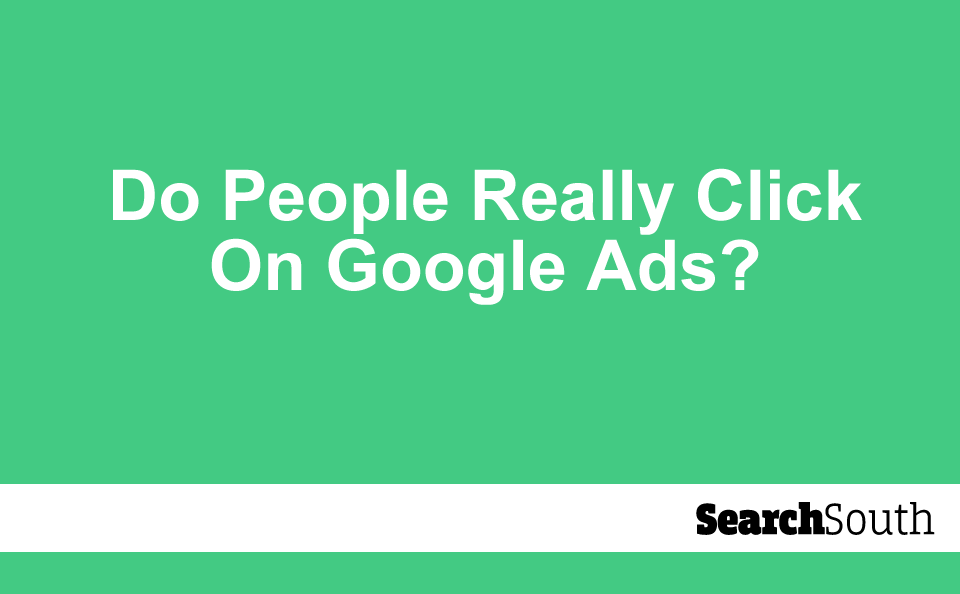
Do people really click on Google Ads?
As a marketing agency owner, I’ve had many clients who have asked me the same question: “Do people really click on Google Ads?” It’s a valid concern, as investing in Google Ads can be a significant expense. However, the short answer is yes, people do click on Google Ads.
In fact, according to a survey by Clutch, 75% of people say paid search ads make it easier to find the information they are searching for on a website or search engine. Additionally, Google Ads can drive significant traffic to your website, especially if you are bidding on high-value keywords.
But let’s dive deeper into the question and explore why people click on Google Ads and how you can make the most out of your Google Ads investment.
Firstly, it’s important to understand that Google Ads appear at the top of the search engine results page (SERP), which is prime real estate for getting noticed by potential customers. When people are searching for a product or service, they are more likely to click on the top results, especially if the ad is relevant to their search query.
Additionally, Google Ads are highly targeted, meaning you can select specific keywords, demographics, and locations to target. This ensures that your ads are being shown to the right people at the right time.
Another reason people click on Google Ads is that they often appear alongside organic search results. According to a study by Google, having both an ad and an organic search result on the same SERP can increase clicks by up to 96%. This means that having a Google Ad can increase your chances of getting clicked on even if you’re already ranking well organically.
However, it’s important to note that not all Google Ads are created equal. To make the most out of your investment, you need to ensure that your ads are relevant and engaging. This means writing compelling ad copy that speaks directly to the needs and desires of your target audience.
Additionally, your landing page needs to match the promise of your ad. If your ad promises a discount or a free trial, your landing page needs to reflect that offer. If your landing page doesn’t deliver on the promise of your ad, people are more likely to bounce and not convert.
Another way to increase the effectiveness of your Google Ads is to leverage ad extensions. Ad extensions are additional pieces of information that you can add to your ad, such as your phone number or a link to a specific page on your website. Ad extensions can increase the visibility and credibility of your ad and make it more likely that people will click.
It’s important to track the performance of your Google Ads and make adjustments as needed. Use tools like Google Analytics to track how many clicks and conversions your ads are generating, and adjust your targeting and ad copy as needed to improve performance.
So people do click on Google Ads, and they can be an effective way to drive traffic and leads to your website. However, to make the most out of your investment, you need to ensure that your ads are relevant, engaging, and targeted to the right people. By following these best practices, you can maximize the effectiveness of your Google Ads and see a significant return on your investment.
In addition, it’s important to consider the competition for certain keywords. High-value keywords, such as “insurance” or “lawyer,” can be incredibly competitive, meaning that the cost-per-click (CPC) can be high. However, this doesn’t mean that you should avoid these keywords altogether. Instead, you should focus on creating highly relevant and engaging ads that stand out from the competition.
Another consideration when it comes to Google Ads is the mobile experience. With more and more people using their mobile devices to search and browse the internet, it’s important to ensure that your ads are optimized for mobile. This means creating ads with concise, eye-catching headlines and ad copy that is easy to read on a small screen. Additionally, you should make sure that your landing pages are mobile-friendly and load quickly, as slow-loading pages can lead to higher bounce rates and lower conversion rates.
One potential downside of Google Ads is that they can be costly, especially for businesses that are just starting out. However, there are ways to manage costs and ensure that you’re getting the most out of your investment. One way to do this is to use a bidding strategy that focuses on the most valuable keywords for your business. Additionally, you can use negative keywords to exclude irrelevant search terms that may be driving up your costs.
Finally, it’s important to remember that Google Ads are just one part of a comprehensive digital marketing strategy. While they can be effective at driving traffic and leads to your website, they should be used in conjunction with other tactics, such as search engine optimization (SEO), social media marketing, and email marketing. By leveraging a mix of tactics, you can create a cohesive and effective marketing strategy that drives results for your business.
In conclusion, people do click on Google Ads, and they can be an effective way to drive traffic and leads to your website. However, to get the most out of your investment, you need to create highly relevant and engaging ads, target the right keywords and audience, optimize for mobile, and track and adjust your performance over time. With the right approach, Google Ads can be a valuable addition to your digital marketing toolkit and help you reach new customers and grow your business.
Did you enjoy this post?
Sign up to our newsletter to receive the latest articles, direct to your inbox.






